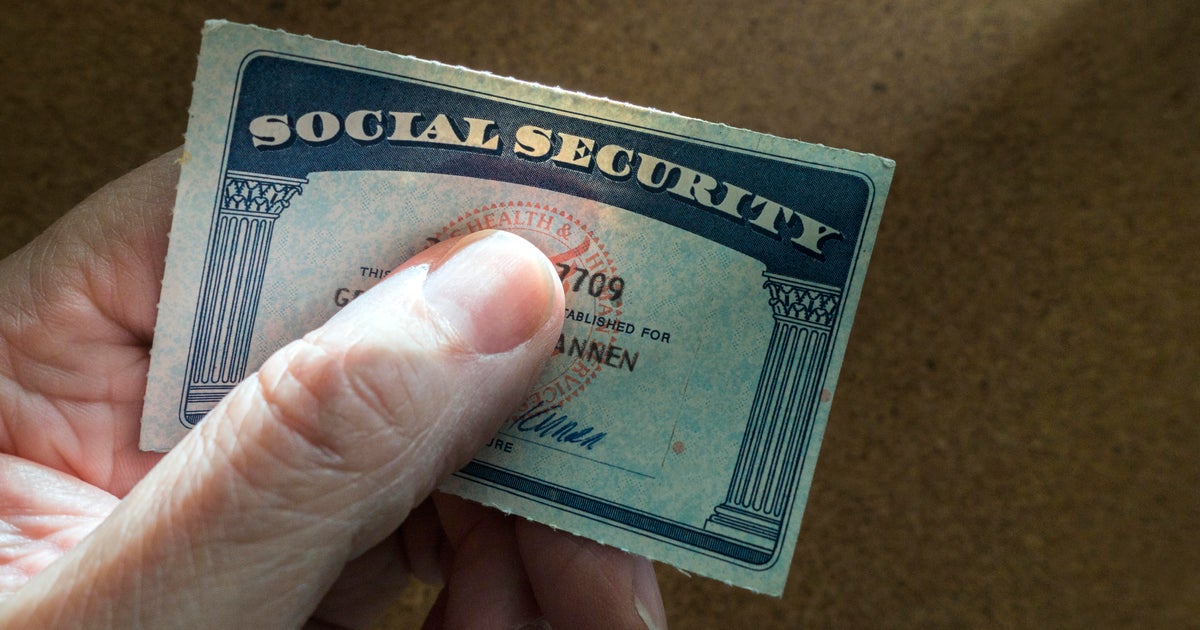The recent decision by the Social Security Administration (SSA) to require in-person identity checks for millions of its current and prospective recipients has caused a significant uproar among lawmakers, advocacy groups, and the beneficiaries of the program. This concern arises from the fact that these changes are expected to coincide with the closure of government offices, a move that critics argue will impose unnecessary barriers on an already vulnerable population.
The new rules, which will affect anyone needing to confirm their bank details with the agency, as well as families with children who are beneficiaries of the Social Security program and are unable to verify their child’s information via the SSA website, are designed to eliminate fraud and waste within the system. This is an issue that has been touted by President Trump and his administration as being rampant.
On Tuesday, the SSA announced that starting from March 31, anyone unable to accurately verify their identity using the agency’s online service, ‘my Social Security,’ will be obliged to visit an SSA field office personally to complete the verification process. Adding to the complexity of the situation, the agency recently declared that Social Security field offices nationwide would be closing down.
According to an analysis of available data by the Associated Press, 26 out of the 47 SSA field offices scheduled for closure on the White House’s Department of Government Efficiency website (known as DOGE), are expected to shut down within the year, with some closures taking effect as early as next month.
Advocates warn that these changes, coupled with the imminent closure of field offices across the country and a plan to downsize the agency workforce via mass layoffs, could result in significant delays in service provision. Nancy LeaMond of the AARP expressed concern that the elimination of phone verification would lead to greater difficulties and lengthier wait periods for resolving routine customer service needs.
LeaMond, who serves as the AARP’s chief advocacy and engagement officer, described the announcement as not just a surprise, but also one that is on an impractical fast-track. She stressed the need for the SSA to be transparent about its service changes and to seek input from the elderly Americans who will bear the brunt of the impact. She pointed out that any delay in Social Security caused by this change could result in real economic hardship.
Agency leaders, on the other hand, announced on Tuesday that they would commence training for frontline employees and management about the new policy over the next two weeks.
Democratic lawmakers were swift to express their disapproval. A group of 62 House Democrats penned a letter to the agency’s acting commissioner, Leland Dudek, on Wednesday, expressing their worries about how the changes could negatively affect older beneficiaries in remote areas and individuals with limited internet access.
The lawmakers wrote, “Requiring beneficiaries to seek assistance exclusively online, through artificial intelligence, or in person at SSA field offices would create additional barriers, particularly for those who live far from an office. We strongly urge you to consider the individuals who may be harmed.”
The changes have been met with fear and trepidation by some Social Security recipients. 80-year-old Sandi Bachom from New York said the change terrified her. A retired documentary filmmaker, Bachom credited Social Security with “saving her life” after she lost a high-paying advertising job and faced trying times. She wondered aloud about the potential consequences if she did not receive her check, pointing out that she did not have any family to take care of her.
While the changes have been met with criticism, the White House insists that the intention of the change is to prevent vulnerabilities to fraud. Harrison Fields, a White House spokesman, argued that the changes were in the best interest of seniors. Announcing the changes, Dudek stated that the agency witnesses $100 million in direct deposit fraud annually. However, a testimony from an official with the SSA inspector general in May 2023 noted that from January 2013 through May 2018, fraudsters redirected $33.5 million in benefits intended for 20,878 beneficiaries, making unauthorized direct deposit changes through the agency’s website.
The agency currently disburses roughly $1.6 trillion in old-age and disability benefits each year. The discontinuation of phone service identification could have dramatic effects for some recipients, especially families with children who will now be required to visit an SSA office in person, as children cannot open online accounts through the “my Social Security” online service.
Nancy Altman, the president of Social Security Works, voiced concerns that the changes would make it much more difficult for Americans to claim their earned benefits. She feared that this could cause significant delays and even potentially collapse the system by overwhelming the field offices. She further suggested that the administration’s ultimate objective might be to privatize the Social Security system.
Traveling to SSA offices also poses a significant hurdle for low-income seniors. Kentucky Governor Andy Beshear expressed his concern about the potential hardships faced by older Kentuckians living on a fixed income, who may be required to travel long distances just to get their basic questions answered. Beshear criticized the administration, claiming that their goal was to hinder beneficiaries from seeking assistance, with the ultimate aim of removing them from the program.
Elon Musk’s Department of Government Efficiency has been tasked with finding ways to downsize the federal government. Musk, who has endorsed debunked theories about Social Security and has characterized the federal benefit programs as a “Ponzi scheme” rife with fraud, has faced criticism for his approach.
To sum up, the proposed changes by the SSA have stirred up widespread concern and opposition from lawmakers, advocacy groups, and recipients. While the agency defends these changes as necessary to combat fraud, critics argue that they pose unnecessary barriers and hardships to an already vulnerable population. As the debate continues, what is clear is that these changes will significantly impact the lives of millions of seniors across the country.









